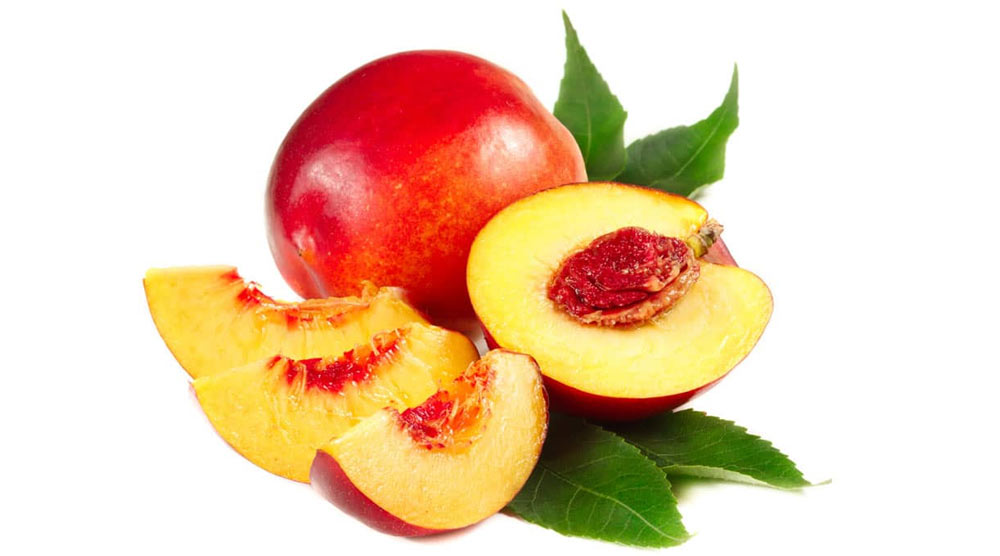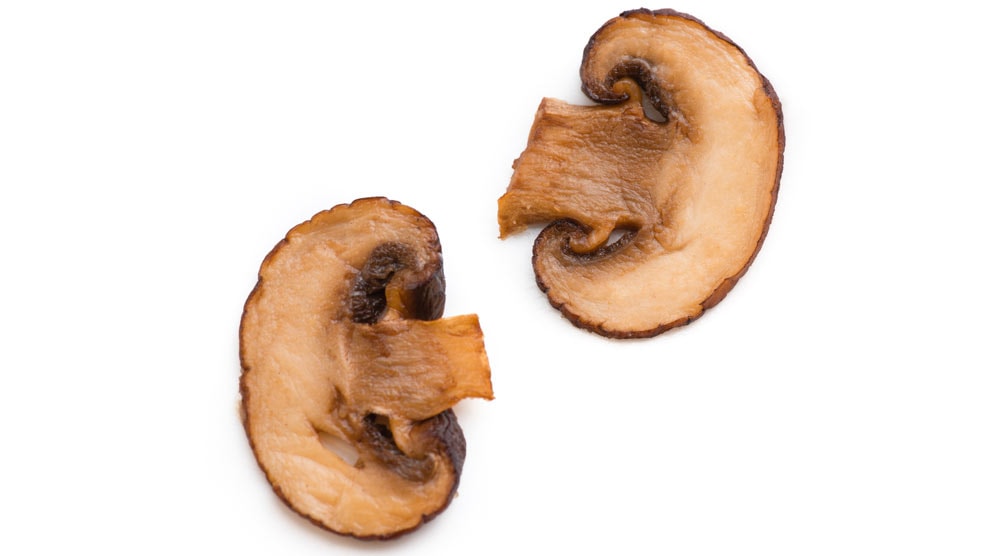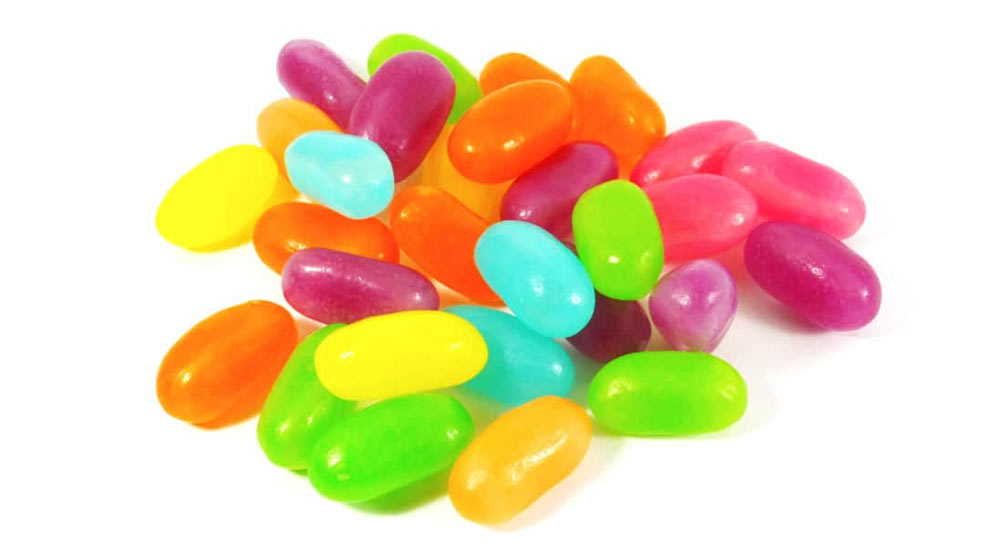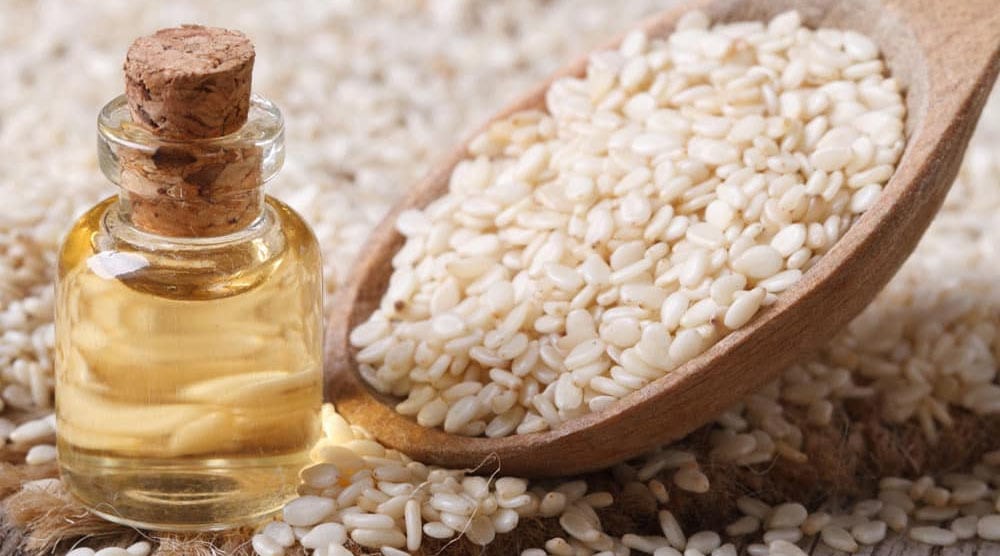Some fruits can be a healthy addition to your dog’s diet, but others can be dangerous for our canine friends. Are nectarines safe for dogs?
Contents
You should always remove the pit though, as it can present a choking or blockage hazard. Nectarine pits also contain cyanide, which is highly toxic if enough is consumed.
Note: This article isn’t written by a veterinarian and isn’t intended to be a substitute for professional advice. If your dog has eaten nectarines, or any other fruit, and you have concerns about the consequences, seek the guidance of a vet.
Are Nectarines Safe for Dogs to Eat?

Nectarines are a tasty treat for your dog, but they are also a great source of vitamins and minerals. While most nutritional studies are performed on humans, some of the benefits to dogs may include:
- Beta-carotene. Nectarines contain high quantities of this antioxidant which is converted to beneficial Vitamin A. Studies have shown it contributes to healthy bone development and eye health
- Vitamin C. This is an important vitamin which could support tissue health and regrowth, promote wound healing, and help fight infection.
- Potassium. Nectarines are a natural source of potassium, which has been linked to several health benefits. These include maintaining nerve function, a healthy heart rate and blood pressure levels, and even reducing the risk of osteoporosis, a condition which weakens the bones.
- Lutein. Studies have shown that Lutein, which is found naturally in fruits like nectarines, can promote eye health.
- Fibre. Nectarines are high in dietary fiber and, providing you don’t give too much, this can help aid your dog’s digestion and prevent constipation.
- Low glycemic index. Foods with a low GI, like nectarines, can help to manage obesity, reduce blood sugar levels and even lower the risk of type 2 diabetes.
Despite these benefits, nectarines should only be given to dogs in moderation. Fruit may be packed with beneficial nutrients, but it’s also high in sugar.
Additionally, the high fibre content may cause gastric upsets if eaten in large quantities.
The general guidance is that safe fruits, including nectarines, shouldn’t make up any more than 10% of your dog’s daily diet.
What About Nectarine Pits?
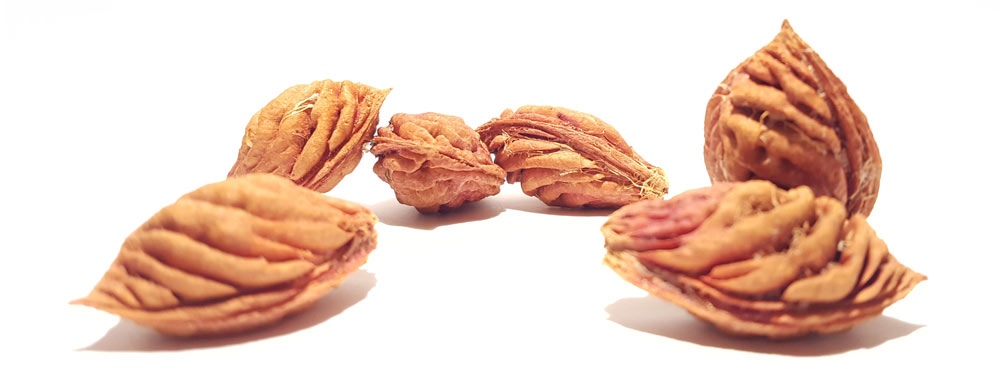
It’s important to make sure the pit is removed before giving your dog nectarines. There are a few reasons for this.
While it’s true that nectarine pits contain amygdalin, which the body breaks down into hydrogen cyanide, you don’t need to worry too much about your dog being poisoned from ingesting one stone. They would need to eat multiple to create a major health scare (the exact amount depends on your dog’s size and weight.)
Potential symptoms of cyanide poisoning include vomiting, rapid respiration rate, red gums, drooling, loss of bladder or bowel control, lack of coordination and collapse. You should get your dog to the vet as soon as possible if your dog is experiencing these symptoms
The bigger risk is that pits are a choking hazard and could create a blockage in the digestive tract. Pits are also abrasive, so the rough edges could damage your dog’s throat. If your dog tries to chew it, they could also chip or fracture a tooth.
For these reasons, you should contact a vet if your dog has eaten a nectarine pit.
“This is a really common object which I remove from small intestines of dogs who’ve managed to snaffle a nectarine”, says vet Dr Linda Simon. “Even larger dogs are at risk and I’ve removed a nectarine pit from both a German Shepherd and a Hungarian Vizsla in whom it was causing a blockage.”
Are Peaches Also Safe for Dogs?
Peaches share much of the same genetic makeup as their nectarine relatives. Essentially, a nectarine is a peach with smooth skin, rather than a velvety surface, and they have most of the same health benefits. This means peaches are also safe for dogs to eat in controlled quantities.
As with nectarines, care must be taken to remove the pit from a peach before allowing your dog to eat it. Peach pits can cause blockages and also contain amygdalin.
What Are Some Other Fruits That Are Safe for Dogs?
There are plenty of other fruits that are safe for dogs to eat – in moderation! Here are a few that you could let them try.
- Bananas. Rich in potassium, vitamin B6 and fiber, bananas may also aid digestion. They’re great for stuffing an interactive treat toy, like a Kong.
- Pineapple. Rich in vitamin C, manganese and fiber, pineapples also contain an enzyme called bromelain. This is believed to help the body absorb proteins. Unripe pineapple, however, can cause tummy upsets.
- Strawberries. Along with vitamin C, potassium and manganese, strawberries are also rich in vitamin B9 (also known as folate). This is important for healthy protein metabolism. Strawberries are higher in sugars than some fruits, so, even if your dog is a fan, you shouldn’t give them too many. Blueberries are another alternative.
- Cranberries. Often added to high-quality dog foods, cranberries could potentially help strengthen the immune system, reduce inflammation and regulate bladder health. These berries are pretty bitter-tasting, though, so your dog may not appreciate them as a treat on their own.
- Watermelon. This juicy fruit is a great one to feed your dog on a hot day when they need to stay hydrated. Just make sure you remove the seeds and rind as these could cause tummy upsets of blockages.
Fruits to Avoid Feeding Your Dog
Not all fruits are safe for dogs. Some examples of toxic fruits include:
- Grapes and Raisins. Most people are aware that grapes and raisins are dangerous for dogs. They don’t always realize just how toxic they can be though. If your dog eats a bunch of grapes, for example, it could lead to kidney failure and may even be fatal. “When I was in vet school we didn’t know what the toxic agent was, but we now know it is the tartaric acid which is thought to be involved,” says Dr Linda Simon. If your dog has accidentally eaten grapes or raisins, be sure to seek veterinary advice.
- Avocado. While avocado flesh isn’t toxic for dogs, the high fat content could cause pancreatitis in large quantities. The stone, aside from being a choking hazard, also contains persin, which can cause an upset stomach.
- Wild berries. If you have a dog that enjoys picking fruit from the hedgerows, take care as some of these can be toxic. Unripe elderberries, rowan, juniper and holly berries should be avoided.
Summary
Nectarines, and their peach relatives, are safe for your dog to eat in small quantities. They contain a variety of nutrients, so can be a healthy snack to add to your dog’s diet.
Just make sure you remove the pit, as these can present a choking or blockage hazard. Eating multiple pits could also cause cyanide poisoning, although this is less common.
